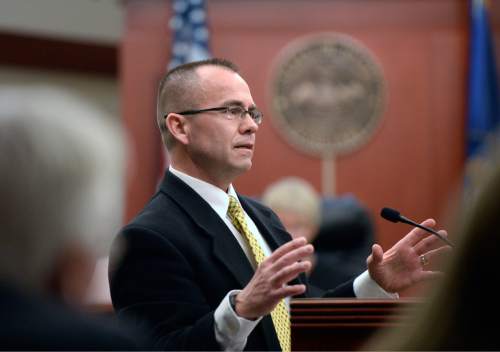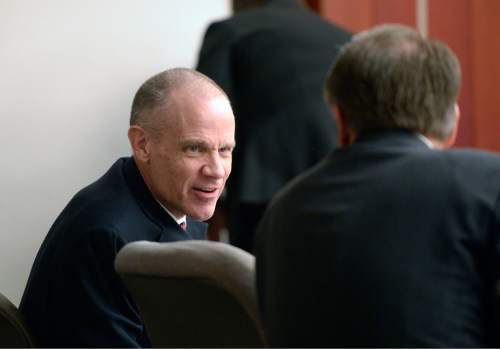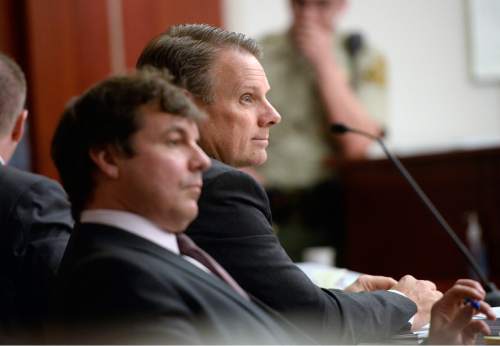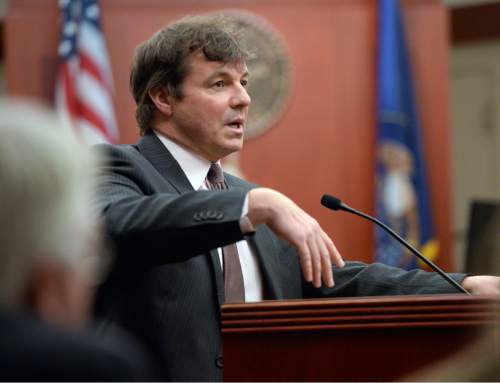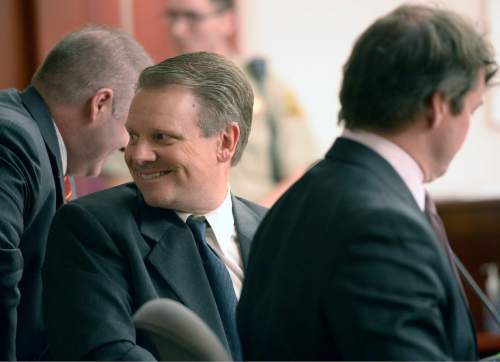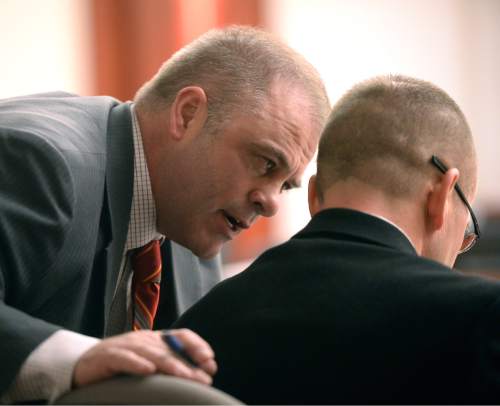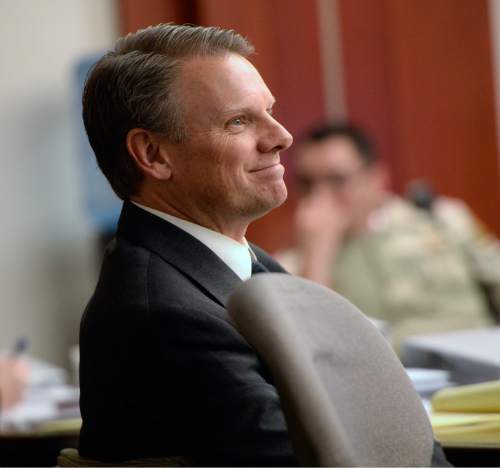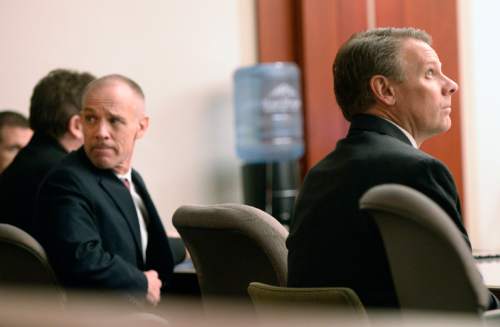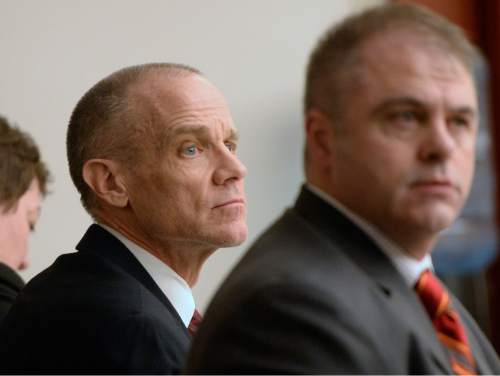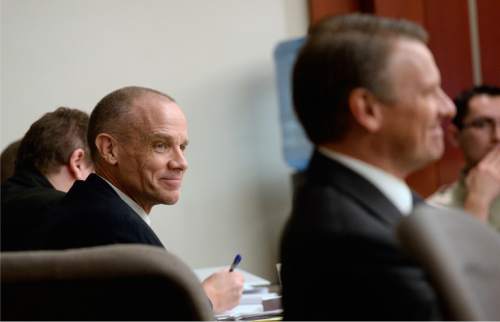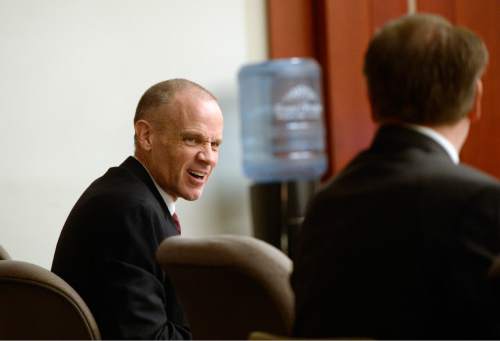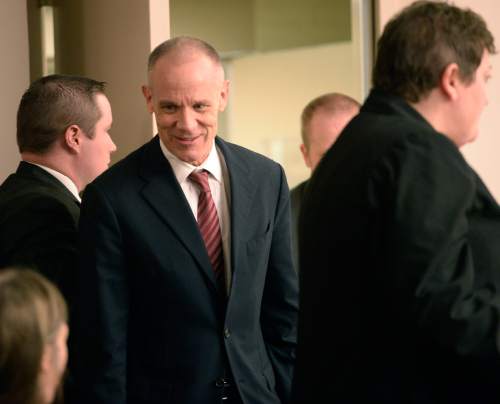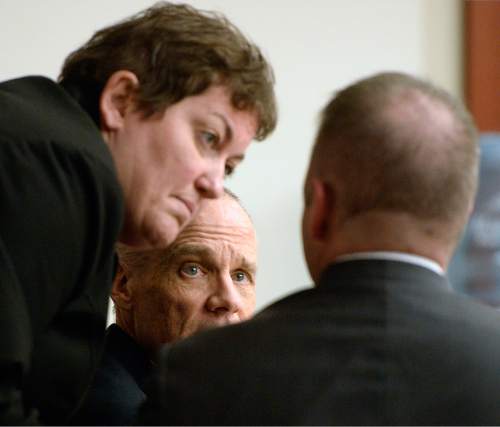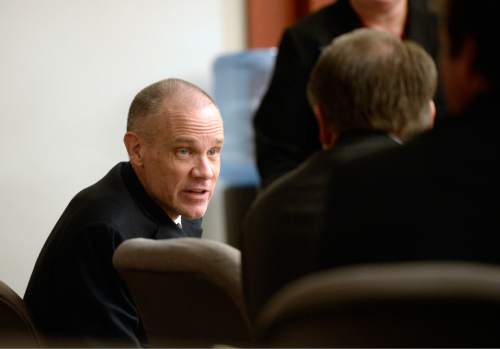This is an archived article that was published on sltrib.com in 2015, and information in the article may be outdated. It is provided only for personal research purposes and may not be reprinted.
A defense attorney for Marc Sessions Jenson — on trial for fraud and money laundering in connection with a failed private golf and ski resort — on Thursday began to link the case to the political scandal that left two former Utah attorneys general facing criminal charges.
Jenson, 54, and his brother, Stephen Roger Jenson, 49, have each pleaded not guilty in 3rd District Court to multiple second-degree felony counts in connection with the $3.5 billion Mt. Holly resort west of Beaver.
Marc Jenson contends that the case, which was filed by the attorney general's office, is political payback for his refusal to bend to a "shakedown" orchestrated by former Utah Attorneys General Mark Shurtleff and John Swallow.
Marc Jenson's defense attorney, Marcus Mumford, asked prosecution witness Jeffrey Donner, a Colorado physician who is one of three alleged victims who lost millions investing in the resort, about the nature of his communications with the attorney general's office after learning the project would likely fail.
Mumford also asked Donner about emails that set up an April 2009 meeting at the attorney general's office that Donner attended, and about communications with Tim Lawson, a Shurtleff associate.
Donner told the jury he had contacted Shurtleff by email, hoping the office would look into the Mt. Holly project and help him recoup his losses.
He also said he understood that Lawson was someone who could "fix things."
"[Lawson] sort of appeared on the scene in March 2009 … and apparently is a good friend of Attorney General Shurtleff … someone who represented that he worked with [Shurtleff] or for his office and was here to 'fix things,' " Donner testified.
It was not clear from Donner's testimony if Lawson took any action, nor have all of the documents referenced during testimony Thursday been made public.
The attorney general's office in 2011 reopened an investigation into the resort.
The case is now being handled by Utah County because the attorney general's office recused itself after Mumford alleged a conflict of interest.
Prosecutors say the Jensons — who tried to turn the former Elk Meadows ski area into a luxury development with ritzy homes, skiing facilities and a Jack Nicklaus-designed golf course — failed to disclose required information to investors, including that they were on the brink of bankruptcy and faced myriad legal problems, even as they sought millions to drive the project.
The brothers also failed to disclose that Marc Jenson had served time in prison for not paying taxes, had been convicted of securities fraud and had filed for bankruptcy, prosecutors say.
Mumford and Edward Stone, who represents Stephen Jenson, maintain the project was a legitimate enterprise that fell apart when the New York-based hedge fund XE Capital, which had backed the project, cut the flow of funding, leaving them unable to see it through.
Shurtleff and Swallow were charged in 2014 with nearly two dozen criminal counts in connection with a pay-to-play scandal they are alleged to have set up inside the attorney general's office. They deny the allegations.
Mumford has subpoenaed Shurtleff and Swallow to testify at the trial. Attorneys for both men have filed objections to the subpoenas, citing Fifth Amendment grounds. A judge is expected to address the objections on Tuesday.
Lawson has not been subpoenaed, but his name appears on a list of Mumford's possible witnesses.
He was charged in 2013 with six felonies, including counts of tax evasion, retaliation against a witness, obstruction of justice and participating in a pattern of unlawful conduct, for actions related to the investigation of Shurtleff and Swallow by law enforcement.


